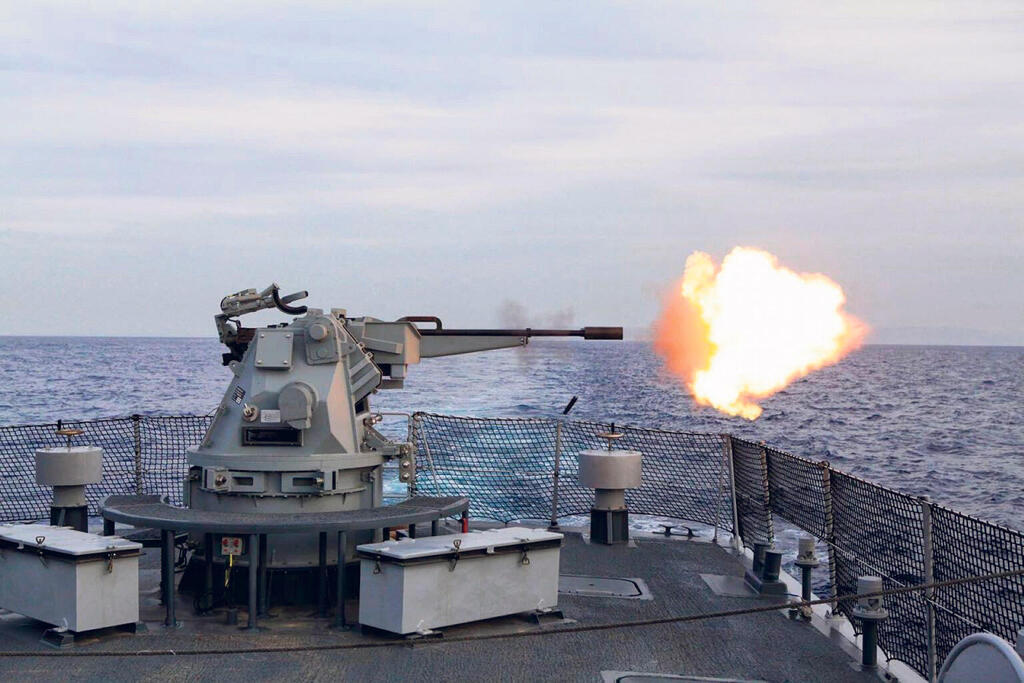
Philippines freezes Israeli arms deals over South China Sea standoff
Manila demands Jerusalem recognize its maritime claims in ongoing dispute with China, putting billions in defense exports at risk.
The conflict between China and the Philippines over control of the South China Sea is now reaching the Israeli government. The Philippines is demanding an official Israeli declaration recognizing its sovereignty over the maritime area, which has been in dispute for many years between the two Asian nations. While Israel is maintaining a neutral stance, this position is coming at a cost to its defense industry.
Calcalist has learned that for several months, the Philippine Department of National Defense has suspended the signing of new contracts with Israeli defense companies, pending a formal declaration from Israel. Although Israel and the Philippines have developed strong ties over the past decade, including a series of defense deals worth billions of dollars, those ties are now under strain.
Among the past deals: the purchase of Rafael's SPYDER air defense systems, Elbit Systems’ ATMOS howitzers and UAVs, and nine advanced warships from Israel Shipyards worth approximately $200 million. In 2020, when then-controversial President Rodrigo Duterte bought a new executive jet, the order was supplied by Israel Aerospace Industries with a $40 million Gulfstream G280. Duterte, who visited Israel in 2018 and met Prime Minister Benjamin Netanyahu and then-President Reuven Rivlin, famously praised Israeli arms manufacturers for not imposing use restrictions, as some Western arms suppliers do.
Duterte was succeeded by Ferdinand Marcos Jr. two years ago. In March 2025, Duterte was arrested at Manila Airport on an International Criminal Court warrant for crimes against humanity, including extrajudicial killings and incitement to rape by soldiers.
The current crisis began when Israel’s Ministry of Defense ordered local weapons manufacturers to prioritize deliveries to the IDF and support its operational needs during the war, delaying shipments to international customers. At the time, the Philippine military was awaiting equipment from Elbit Systems. Despite diplomatic efforts, including a visit by Eyal Zamir, then-director general of the Defense Ministry and now Chief of Staff, Manila stood firm, insisting that Elbit adhere to the original delivery timelines.
According to defense industry sources, the Philippines continues to demand a high-level political statement, from either the Israeli prime minister or foreign minister, affirming Israeli recognition of Philippine sovereignty over the disputed South China Sea area. A 2016 ruling by the Permanent Court of Arbitration in The Hague found no legal basis for China’s expansive claims.
“The Philippines is trying to force Israel to take sides,” a senior defense official told Calcalist. “They want us to recognize their sovereignty in the South China Sea, just as Israel recognized Morocco’s sovereignty over Western Sahara. Without such a declaration, they’ve made it clear they won’t sign new arms deals.”
Although new contracts are on hold, previously signed deals are still being executed. The Israeli shipyard deal to deliver nine Shaldag MK5 warships equipped with Rafael’s Typhoon weapon system is ongoing. The final ship is expected to be delivered next month. In recent years, Philippine arms purchases from Israeli firms have averaged $400 million annually, and future potential is estimated in the billions due to the country’s ongoing military modernization.
According to defense officials, repeated appeals from the Israeli defense industry to the Ministries of Defense and Foreign Affairs to resolve the dispute have so far yielded no results. “The political echelon is ignoring the issue,” one source warned. “There is no vacuum in the defense market, where we don’t compete, others will. The U.S., France, and Turkey are ready to take our place. It takes years to establish a presence in such a market, and we may lose our foothold if the politicians don’t act.”
Dr. Lauren Dagan Amos, an expert on the Indo-Pacific and a member of the Deborah Forum, said Israel lacks both understanding and urgency in responding to the geopolitical dynamics of the South China Sea. “The Philippines, meanwhile, has exaggerated expectations of Israel and remains suspicious due to its ties with Duterte,” she said. “There is real interest in Manila to upgrade relations with Israel, but it’s not happening. The Philippines feels increasingly isolated because of its standoff with China, while Israel continues to view the issue through a narrow lens. That’s a weakness.”
Elbit Systems said in a statement: “The company views the Philippines as a relevant customer. Elbit has delivered a variety of systems to the country that are in active and successful use. We hope any outstanding issues between the two governments will be resolved soon.”
Israeli Ministry of Foreign Affairs responded: “The issue is known and under discussion with the defense establishment and industry stakeholders. The claim that Israel’s position on the South China Sea is the decisive factor is baseless.”














